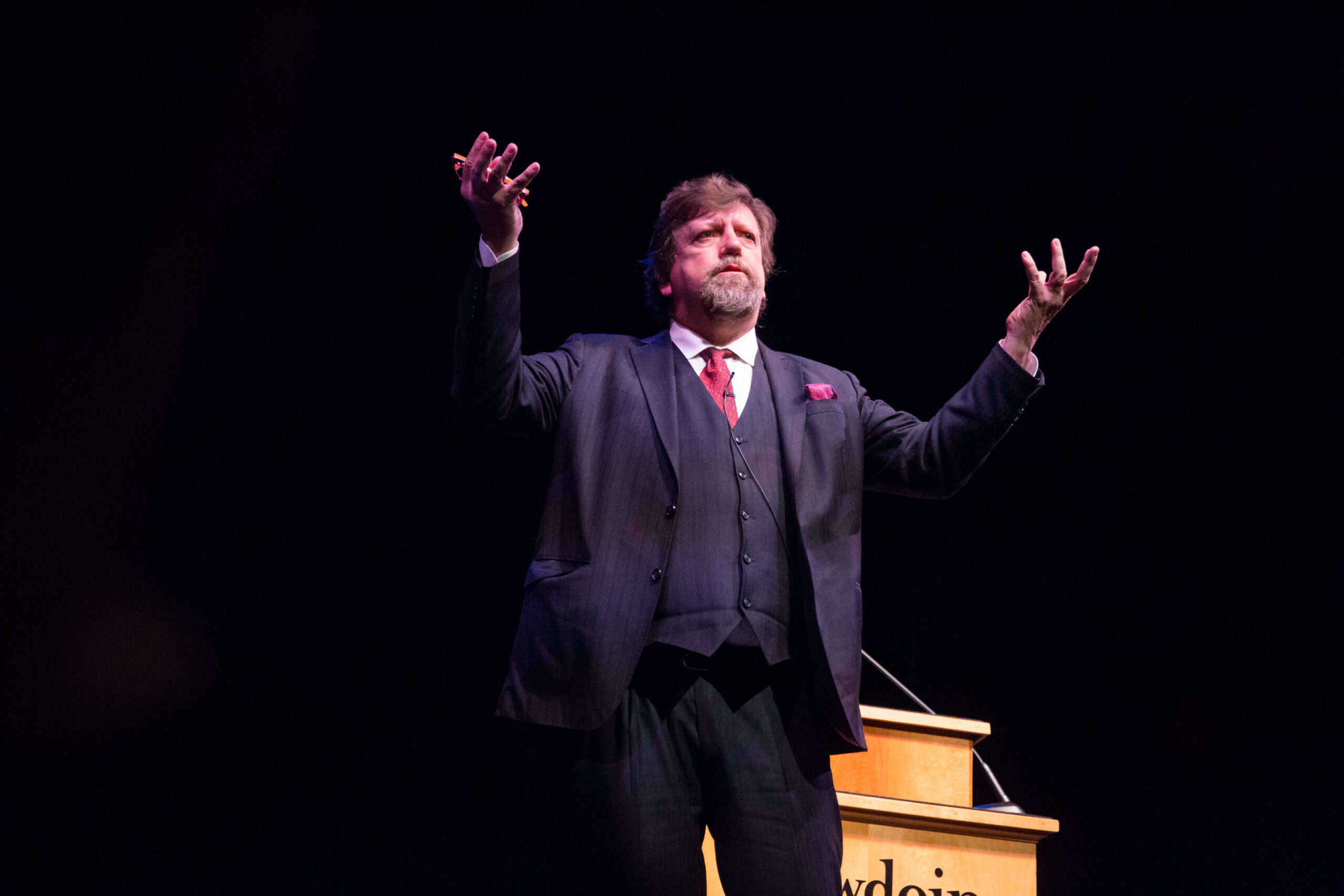Producer of ‘Hamilton’ on democracy
March 31, 2017
The religious Festival of Dionysus in classical Athens transformed the art of storytelling when Thespis turned and spoke to someone else on stage instead of directly to the audience. That 90 degree pivot, said Oskar Eustis, artistic director of the Public Theater in New York City and producer of Broadway hits “Hamilton” and “Fun Home,” is an important, destabilizing act in the creation of theatrical dialogue. It shows that truth does not rest with one authority figure, but rather in the conflict between different points of view.
 Ann Basu
Ann BasuAt the Kenneth V. Santagna Memorial Lecture Tuesday evening, Eustis discussed the rise and importance of public theater through looking at snapshots in history—from Athens to Elizabethan England—to demonstrate how theater became the fundamental art form of democracy.
“What happens is plays mark how people change, and people change by interacting with each other. And if you don’t believe that, then you don’t really believe in democracy,” he said.
According to Eustis, theater also asks people to observe someone else’s point of view and imagine what it is like to be someone other than yourself.
“That act of empathy is absolutely essential to making drama work is also absolutely essential to democracy. You can’t make a democracy work if the citizens of that democracy aren’t able to imagine what it looks from somebody else’s point of view,” Eustis said.
“Democracy and theater develop together. It doesn’t really matter which came first,” he added.
In addition to his work on Broadway and with the Public Theater, Eustis has also taken on projects in an effort to bring theater to a wider range of the people. Eustis is also running the free Shakespeare in the Park and bringing free productions of Shakespeare to populations that otherwise would not have access to theater, such as prisons, homeless shelters and halfway houses through the Public Theater’s mobile unit.
“Oskar Eustis, to put it succinctly, is a giant in American theater,” said Professor of Theater Davis Robinson.
The project that excites Eustis most is the Public Works program where the Public Theater works with community partners to start dance classes and classical theater training that culminates in a show in Central Park over Labor Day weekend.
“[Public Works] takes something that’s frozen—the idea that up here we are an art object, we are stars, we are celebrities and out there you are the audience receiving us—it breaks that paradigm. It actually says the difference between who is in the audience and who is on stage is not a binary difference, it’s just a gradation difference. It’s just what you happen to be doing today,” Eustis said.
“To understand the influence of Eustis, we need to first understand the reach of the Public Theater,” said Robinson. “[The Public Theater] is an incubator for some of the brightest and most innovative theatrical talent in the country … Eustis has used this position to democratize the theater and push the envelope on what topics are appropriate for modern audiences.”
The majority of the audience was comprised of faculty and students involved with the College’s theater and English programs, who also attended a dinner and reception with Eustis beforehand.
Austin Goldsmith ‘18 and Eric Mercado ‘18 both emphasized that they chose to attend the talk in part because of their involvement in Bowdoin’s theater scene and Eustis’ reputation and influence within the field.
“It’s one thing to see someone who’s so passionate about theater and another who’s passionate about theater and what it can do for communities. I think that’s where I feel most inspired by people’s work,” Goldsmith said.

Comments
Before submitting a comment, please review our comment policy. Some key points from the policy: